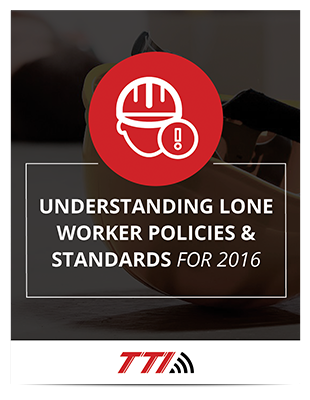Safety & Security Blog
The latest in employee safety, duress alarms, and lone worker security.
Today's threats are growing by the moment. A wireless society means that more workers are doing their jobs remotely, while incidents of violence and terrorism grow continually. It's challenging to keep up with who is where, what they're up to, and when a worker might be in danger. In response to these trends, duress alarm systems have been developed to help organizations keep track of workers, check on their well-being, and allow workers to summon help when needed. This is what duress alarms are and how they can protect your most valuable asset -- your people.
Share
A sizeable percentage of workers in today's society spend all or a lot of their time alone. Sales people, service professionals, security guards, medical personnel, clerks, and numerous other workers are often by themselves, in unfamiliar areas, around people they don't know, and potentially in the dark. When fall and winter set in, dark can come as early as 4PM. This means that a typical worker with an 8 to 5 job is leaving well past dark, and workers on second and third shifts might come to work and leave again, all in the dark. How can employers help keep workers safe when they're out in the dark?
Share

Subscribe and download your free guide now!
Lone workers are at a greater risk than those who are continually around others. These workers can become ill, injured, or worse, and might be stranded helpless for hours before they are missed or discovered. Companies need to have plans in place to monitor these workers and to empower them to get assistance if needed. Solutions like duress alarms are ideal for helping to keep lone workers safe and secure. Here are three different types of lone workers you need to identify in your company and put protective measures in place for.
Share
Nurses have tough jobs. They step in when most everyone else runs out. Nurses handle nasty things, frightened and irritable family members, demanding doctors, brutal schedules, and people who are sick or injured and aren't in the best of moods or conditions. Additionally, nurses are also often exposed to violence. Some hospitals have implemented policies for nurses to carry ordinary mobile devices, like smartphones or tablets, but these devices come with problems, as you'll soon see. The ideal solution is lone working devices like Guardian security alarms that nurses can use anywhere, anytime, in virtually any situation.
Share
Every day in the United States, an estimated 3.2 million teachers and more than 50 million students make their way to public and private schools. These figures don't even include all of the substitute teachers, administrators, helpers, bus drivers, and other staff it takes to run a full-time educational facility, nor do these numbers include the preschool, kindergarten, community school, and college campuses around the nation.
Share
Unfortunately threats to college campuses have become common place in the United States. Bullying, Suicide and Self-Injury, Teacher Attrition, and Active shooters are all problems that campuses are facing.
Share